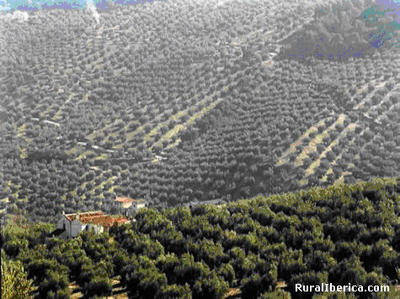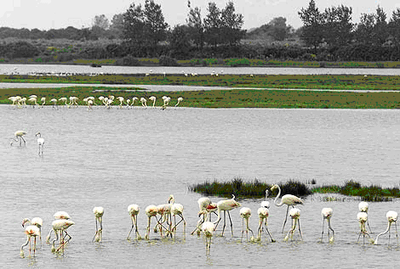| case: | SE4 | location: | Guadalquivir basin (Spain) | sectors: | Agriculture and livestock; Water resources |
In the Guadalquivir basin, in the southern part of Spain, agriculture is a key economic sector. Due to its privileged agro-climatic conditions, the region grows a wide range of crops, from cereals, oilseeds, sugar-beet and cotton, to varied fruits and horticulture products and olives, being Andalusia the world's largest producer of olive oil. Intensive and extensive productions coexist as well as market-oriented large, medium-size and small farms.
The main issues concerning water management and climate change in this basin are:
|

The Guadalquivir basin (Spain)
. Source: own elaboration |

|

Flamingos in the marshes of Doñana National Park (Guadalquivir basin)
Source: Miguel Vazquez www.elmundo.es |